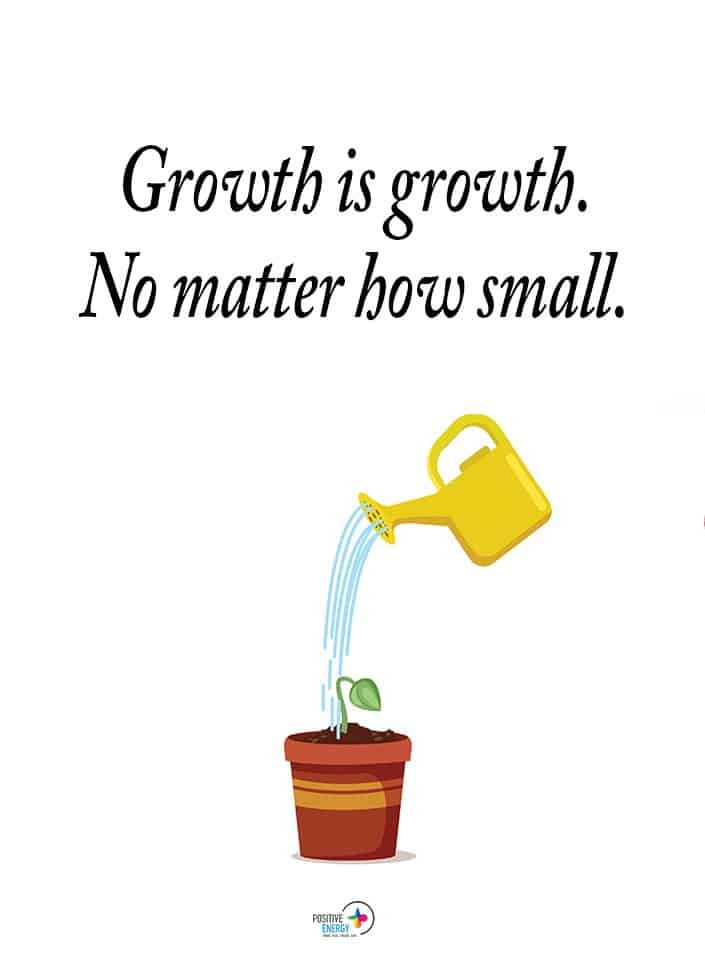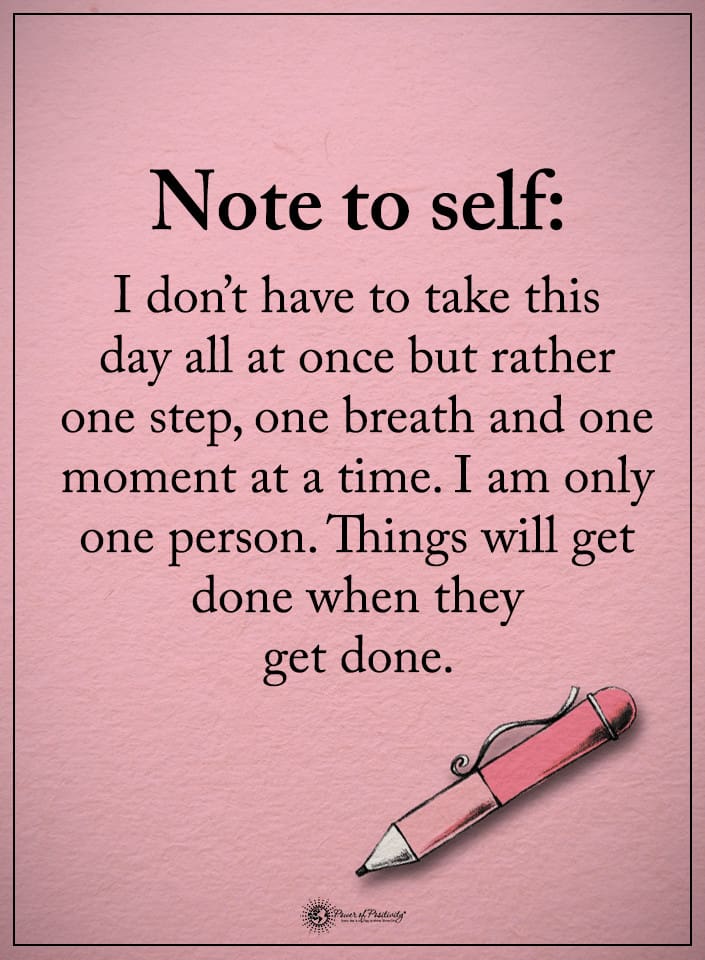Keeping a diary or journal-style recording of life events has been done since the dawn of time. Cave dwellers would carve pictures and leave these records for future generations to see their struggles and celebrations. Writing is a powerful tool, so have you ever considered keeping a positivity journal?
It’s possible that this optimistic writing style could change your life, and it can certainly alter your perspective of the world around you. The problem with journaling is that many people start it only to give it up a few days later, as it can sometimes be mundane. It would be best if you learned how beneficial it is to push through those times when you don’t want to do it.
The difference is that a positivity journal can inspire you and help you feel better. It’s an integral part of your self-care, and it can be beneficial for your overall health and well-being. Everyone benefits from keeping this style of an optimistic diary.
This is especially true of folks who are moody, have a negative mindset, and are often depressed, as they can find it even more helpful. Could this be the key to achieving a better perspective and developing a positive attitude?
Twelve Undeniable Benefits of Writing in a Positivity Journal
Journaling is known to help folks that suffer from anxiety disorders, like obsessive-compulsive disorder. Similar to depression, the encouraging results are well-documented. Here are some benefits to positive journaling for you to consider.
1. Keeping a Positivity Journal Enhances Your Creativity
Everyone has a creative side, but many folks need the inspiration to help them tap into it, and journaling can be that tool. When you get your creative juices flowing, you can bring a healing calm to yourself. Why do you think people paint, learn to play musical instruments, and craft?
Writing is another form of creativity, and greats like Mark Twain, Ernest Hemingway, and Agatha Christie, learned that writing could also be very profitable. Your imagination can be beneficial in many aspects of life, and journaling is a way to get started.
2. Releases Pent-up Feelings
Part of your emotional well-being is learning how to release your pent-up feelings. As you go through life, you carry a heavy load of stress. It doesn’t matter how much money you have or where you live; stress is inevitable.
However, journaling allows you a great outlet to get rid of those frustrations to develop a more positive mindset.
3. Writing in a Positivity Journal Improves Gratitude
You can make your writings part of a gratitude journal too. Taking the time to write down five things a day that you’re grateful for will change your outlook. Instead of always focusing on how bad things are when you start looking at the good side, it will alter your perceptions.
4. Change Your Mood
Do you wish that you could be in a better mood? A positivity journal may be just what you need to help boost your spirits. When you write down the things you’re thankful for, your goals, and your blessings, it can’t help but change how you feel.
Someone who dwells on the negative all the time will be pessimistic. However, the optimistic person will have a better outlook on life and an enhanced mood.
5. Prove Your Progress and Personal Growth with a Positivity Journal
A daily journal can be like a roadmap; there’s no right or wrong way to do it. You can set up your writings however you wish. This book can be imperative if you’re making a weight loss journey or achieving sobriety.
You can keep track of where you start and monitor your progress. You can look back through these writings and see the things you’ve overcome and how far you’ve been. It can be terrific for your psyche to see progress, which is one thing positivity journaling can provide.
6. Improve Your Quality of Life
Whatever you want to call it, taking time out of your day to sit alone and practice gratitude can significantly improve life quality. Scientists have even reported that writing down five things you’re thankful for every day can dramatically improve your outlook.
If you want an extraordinary life, you need this time to put everything else aside and focus on yourself. Find a comfortable space to sit alone and look at all the good things happening to you. Remember, since this is a positivity journal, you want to focus on the positive aspects.
When you write things in this book like:
- “I got an unexpected pay raise today.”
- “My kids picked me wildflowers and made me a handmade card.”
- “I had a great day at work, and everything went my way.”
- “I made a memorable dinner with all the trimmings, and my family loved it.”
Again, you can set up your journal however you like it, but the key here is that you’re creating positive memories. One day, when you look back on this list, you will see the little things that make your life so unique.
When you have times when the world seems cruel, and you don’t feel like you can go another day, reading things like these entries above can recharge your spirit.
7. Improves Physical Health
Who knew that keeping a gratitude journal could impact your health? First, writing about your blessings will help you have a sense of calm about yourself. It will allow you to handle stress better and help keep things like hypertension, headaches, and heart disease at bay.
Did you know that you can help control blood sugar with these writings? According to a study by the Journal of Positive Psychology, folks who use positivity journaling could lower their HbA1c levels within months.
8. A Positivity Journal Promotes Spiritual Growth
When you work to maintain a positive mindset, you become grateful for every cycle you experience. Learning to embrace those tough times can significantly impact your mental stress. Once you realize that hardship promotes growth, it changes your outlook when struggles come your way.
Through positive journaling and this process, many people realize the need for divine guidance and power more significant to help them. Using the timeline that this book provides shows that it’s been there all along.
9. You Increase Self-Esteem if You Keep a Positivity Journal
If you want a better mood, you need to start using a daily journal to enhance your self-esteem. It’s hard to stay in a poor air after reminding yourself of your worth. A study reported by Science Direct proves that people who engaged in body-focused positivity writing had a better overall view of themselves.
Additionally, there was less prejudice about weight, and people learned to accept themselves as they are. Participants became more accepting of themselves and those around them.
10. Improves Relationships
When was the last time someone acknowledged your accomplishments at home or work? How did you feel when you received this praise? It feels fantastic to be recognized for your contributions, but did you know that it can help you to improve your relationships?
It sounds bizarre that being praised helps with relationships. Consequently, some believe it demonstrates that giving and receiving gratitude gives you a deeper connection with people. It can improve your romantic relationships as well as those with coworkers.
11. You Sleep Better
Part of your emotional well-being is hinged on you getting sufficient rest. A study conducted by the National Library of Medicine found that people who express their gratitude and live with a positive mindset get better rest at night. There’s nothing worse than tossing and turning just to get a few hours of shut-eye.
12. Writing in a Positivity Journal Enhances Mental Well-Being
The decision to have a positive mindset will have an overwhelming effect on your mental health. According to the Journal of Personality and Social Psychology, folks who wrote in a positivity journal daily had a more optimistic outlook for their future. The mental health benefits of keeping such a diary impact your physical body and mind.
12 things you should always track in your positivity journal
Here are some ideas to help you start journaling.
1. Track the Day’s Events in Your Positivity Journal
Whether big or small, keeping track of events is a great way to see what a typical day in your life looks like. As you remember these events, you may feel prompted to write how the event made you feel. For instance, if you went to a park during your lunch break, you might note how pleasant it was to sit in the sunshine for twenty minutes while you ate your sandwich. Even if the event seems mundane, it’s still significant because it was part of your day.
2. Make a Note of Any Challenges You Face
Be sure to write any challenges you faced during the day. Again, they can be big or small events. Perhaps someone was rude to you at the grocery, or you lost the car keys, and it took an hour to find them. Whatever your challenges, write them down in your positivity journal. Remember, you’re not alone. Everyone faces challenges in their daily life. Here are some everyday challenges everyone faces at some point in their life that challenge their positivity.
- Feeling isolated at work or school.
- Unsure about future; can’t decide about career or schooling, maybe need to change jobs.
- No time to rest or relax. Family or work can be consuming. Feel you never get a break.
- Financial pressures; not making ends meet financially or being in debt.
- Over-committed: You give to saying yes all the time.
- Relationship problems with family or friends. These struggles can wear you down.
- Poor self-care: You don’t feel your best when you don’t eat right or exercise.
- Being around negative people: You feel like the people around you don’t support you but pull you down.
3. Remember Positive Events of the Day
In light of the challenges you recorded, what positive steps did you take to overcome them? Maybe you ignored the rude person or turned on your favorite music while looking for your car keys. Whatever you did to get through the challenge, write it down.
4. Add Your Daily Accomplishments to a Positivity Journal
As you reflect on the day, look for your achievements that you can be proud of. They don’t need to be earth-shaking to be significant and meaningful. Maybe you finished reading a biography of someone you admire or organized the linen closet in your bathroom. Other things you could write:
- Taking small steps to complete a project or begin a new project
- Going to the gym for the first time in months
- Eating healthy for an entire day
- Making the dreaded phone call to talk to someone you needed to connect with
- Making a doctor’s appointment, you’d been putting off
- Getting the courage to tell someone you can’t do something instead of saying yes automatically
5. Keep Track of Your Exercise and Physical Activities
Record your physical activities, such as any sports you play, exercises you do, or long walks you take. Please record how long you did the training and whether or not you enjoyed it. Ways to get more physical exercise without even trying.
- Park farther away from the store, so you need to walk farther.
- Skip the elevator and walk up the stairs
- Walk your dog
- Walk to your friend’s house
- While you’re at your child’s sporting events, walk around
- Walk at the golf course instead of driving a golf cart
- Ride your bike to the store
6. Remember to be Grateful
Write what you are grateful for today. Maybe you’re grateful to be pain-free today, thankful to see your family, or you can work remotely today. Focusing on gratitude can change your outlook on life.
A study at the University of Miami had one group of people record things they were grateful for during their week. A second group wrote their daily irritating situations or something they didn’t like each day. The third group of people wrote about events that happened to them, not bad or good, just what happened. After two and a half months of doing this, the researchers found that the people who wrote about what they were grateful for were more optimistic, didn’t focus on their problems as much, and didn’t go to the doctor. In general, these people were happier than the other groups.
Other ways you focus on gratitude each day include:
- Thank someone today-Specifically thank someone today. You can do this in person or through an email or text. Tell them how you appreciate what they do. Explain how what they do makes your life and the lives of others better.
- Pray for someone-Talk to God about this person. Thank him for creating them.
- Practice mindfulness-Focus on the moment of your day and what you’re incredibly grateful for at that moment.
7. Share Your Thoughts on How Music Impacts Your Mood
Keep a record of any music you listened to today that enhanced your positive thinking. Usually, happy music makes you feel better. The upbeat tune and lyrics help your brain release chemicals that improve your mood. Consider creating a playlist of upbeat songs that make you optimistic about life. Listen to these songs when you’re down or need a boost in your day.
8. Note Anything That Delights You in a Positivity Journal
Who made you laugh out loud today? Was it a guy on TikTok? Or maybe your co-worker did something that made you laugh. Whoever it was, write about the experience in your positivity journal. When you reread this, no doubt just remembering it will give you a chuckle.
9. Reflect on Whether You Are Flexible or Resilient
Were you flexible today when you found out a coworker didn’t reserve the restaurant for a birthday lunch like they said they would? Were you resilient enough to find another place to eat, so the birthday lunch still happened? Life throws you surprise all the time. Flexibility means you can re-adjust when needed when there is a sudden change. Unexpected problems don’t cause you to fall apart, but you recover quickly and get the job done.
10. Think About the Tasty Foods You Ate to Instill Gratitude
It’s basic, but why not write about the foods you ate today in your positivity journal? Perhaps you tried something new and found out you like it. Or maybe you had dinner at your grandma’s, and she served your favorite casserole. If you savored each comforting bite, it’s worth writing about.
11. Release Negative Residue from the Day
So, what wasn’t your favorite thing today? Maybe you had to run errands and hate doing that. Or perhaps it was going to the dentist or taking your dog to the groomers. Everybody has their not-so-favorite things. Why not write about it to release the negative residue?
12. Explain What Made You Happy
What was something you enjoyed today? Maybe you took your kids to the pool, and it was fun chatting with other moms about your kids. Or perhaps you went to the gym with a buddy for the first time in months, and it was good to get caught up. Whatever the activity, write about how it made you feel.
Final Thoughts on the Benefits of Writing in a Positivity Journal
It’s easy to see that keeping a positivity journal comes with massive benefits. This powerful practice will help you be a better person and feel better. Journaling can enhance your mental, physical, spiritual, and emotional well-being and help you build resilience.
You can improve relationships with your partner, children, coworkers, and the divine, as well as reduce your stress levels. You can improve your self-esteem, learn to be more accepting of others, and be thankful for all the gifts received in life.
While you should strive to write in this journal every day, at least a few times a week will suffice. The important part is to get that pent-up anxiety and stress out of your heart and mind into a positivity journal. This little book is a roadmap of the times you won and the times you’ve lost, but most importantly, it’s a reminder that you’re resilient.


















 Community
Community

